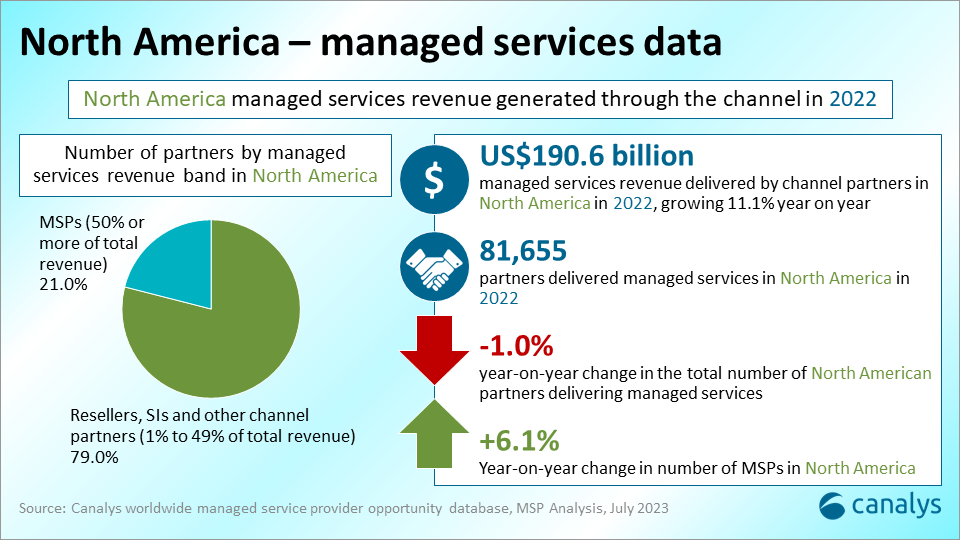On-device AI and Samsung's role in the future smart ecosystem race
30 November 2023
Canalys is part of Informa PLC
This site is operated by a business or businesses owned by Informa PLC and all copyright resides with them. Informa PLC’s registered office is 5 Howick Place, London SW1P 1WG. Registered in England and Wales. Number 8860726.

The inaugural Canalys Channels Forum North America event included an excellent discussion around MSP strategy and partner/vendor relationships in the future. The MSP Expert Hub: Alpha MSPs brought together vendors, partners and cloud commerce marketplace companies to ask the question: how can MSPs build a stronger business in the next 12 months?

Canalys host: Robin Ody, Principal Analyst, MSP Analysis
Partner participants: Agilitec, Pax8, Solutions II
Vendor participants: Lenovo, Okta, SonicWall
The partners on the panel agreed demand from customers for managed services is still high and despite budget constraints, a broader range of customers are now aware of, and willing to invest in, the capabilities of managed IT providers. Whether it be consulting for regulatory compliance and cyber insurance, or professional services around network and cybersecurity design, or managed detection and response capability, customers need more help, not less.
The one question that remains around AI is its true growth. Some emerging trends reveal partners using AI for internal automation, particularly improving reporting from tools such as PSA (for ticket resolution) to enhance customer experience. However, the partners are also keen to witness vendors invest in their own native AI capabilities, to bring in more functionality across their tech stacks and improve cross-vendor product integrations.
With the rise of tools such as Co-Pilot for PCs, customers will likely need even more consulting capability in 2024 and 2025, along with upgraded devices for Windows 11 refresh. Partners are likely to witness continued demand across the board for services, but they must show differentiation and value. Customers are still likely to face a difficult year or two at least from an economic standpoint, so partners must balance flexibility with specialization. Looking at the latest quick poll data, there is likely to be an increase in the number of cybersecurity vendors customers use in 2024 and partners will need to quickly adapt their existing skills in working with some new tools and vendors.

69% of partners believe a dedicated MSP program would improve their relationship with a vendor when it comes to delivering managed services for end customers. However, the overwhelming feedback from partners on the MSP Hub was that any program would need to have a very different approach to any other kind of vendor partner program today. According to the partners, an MSP program means removing restrictions, taking away minimum license requirements and annual commitments. The key is to enable the partner-customer relationship, not apply artificial rules that serve only the vendor.
Vendors have long seen partners as an extension of their sales team, there to serve the needs of the vendor and help them hit their growth targets. In a top-down resell world, this ignored the value of the partner. In the managed services space, value is defined by the partner and the customer, and the vendor is secondary.
One partner said they reviewed their vendor stack on a quarterly basis, which caused every vendor on the panel to sit up and take notice. Replacing a vendor in one's managed services stack is not easy and relationships take time to build, so it is not to suggest that these reviews necessarily lead to change, but it was important to make the point that vendors must work harder to align their programs and go-to-market strategies with those of their partners. If they become complacent, their partners will have no choice but to re-examine the relationship.